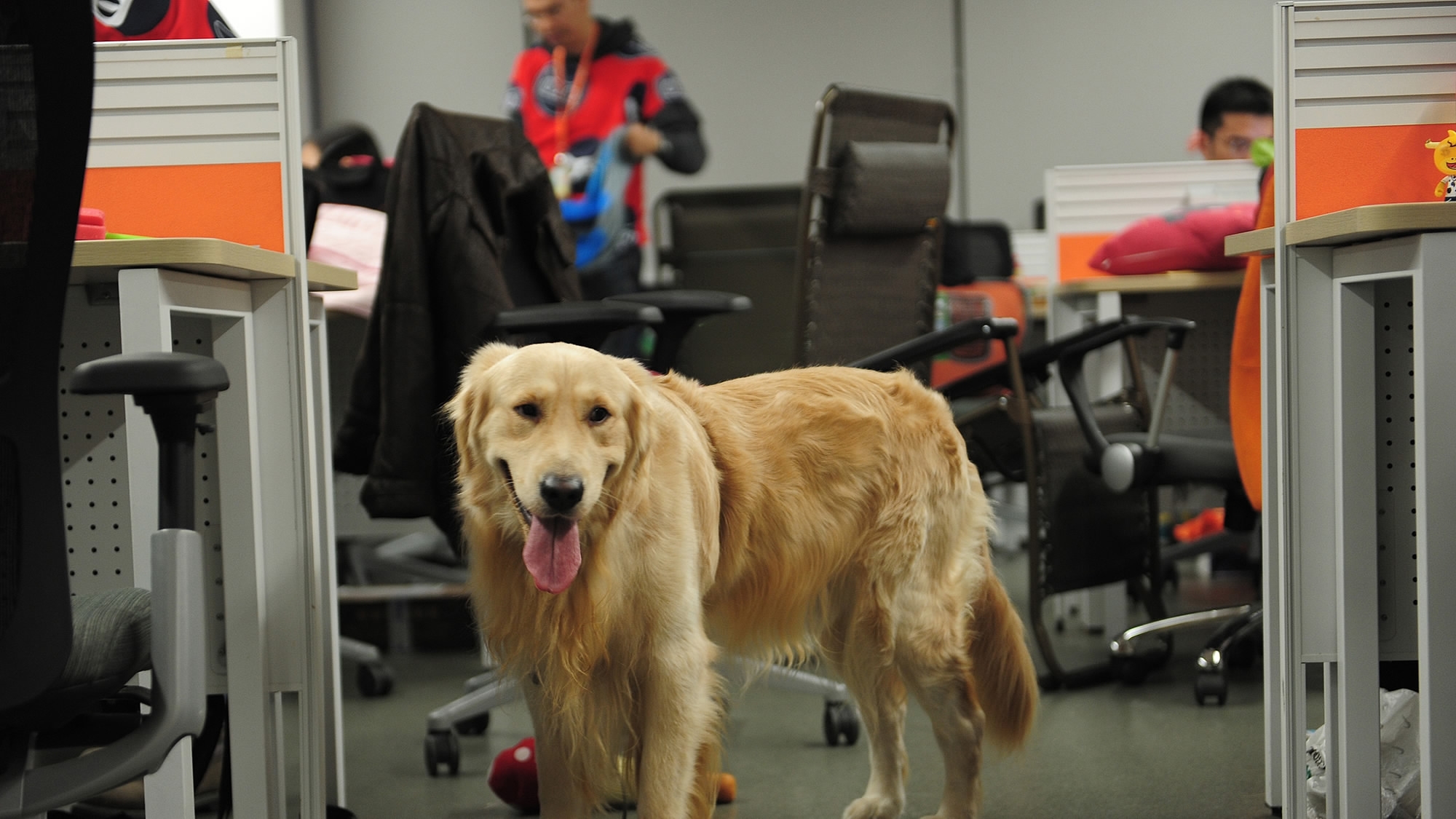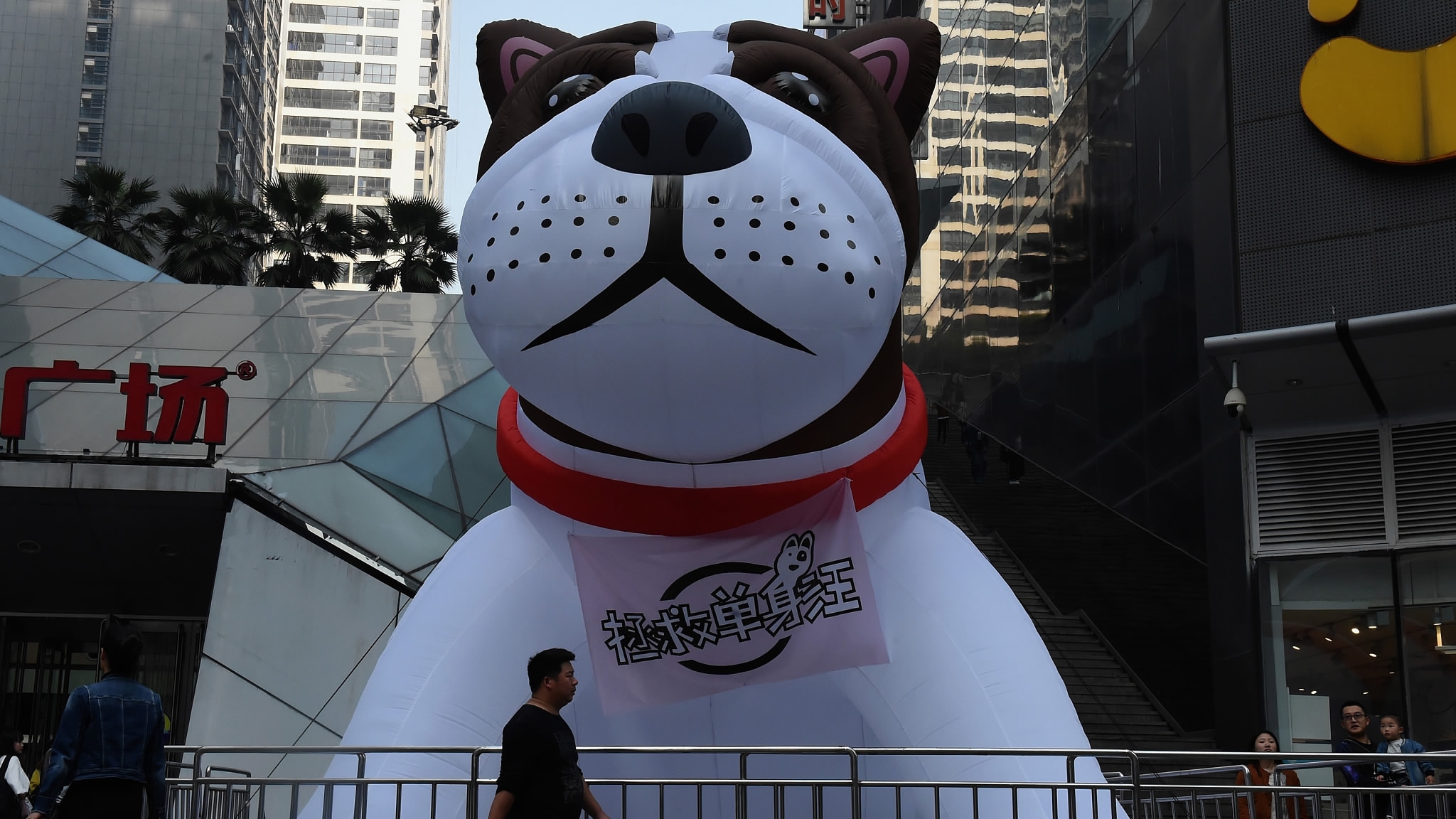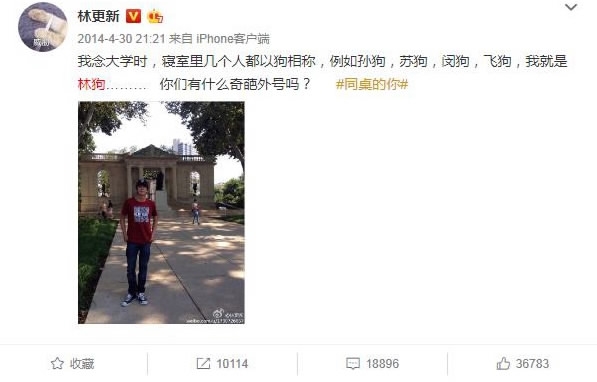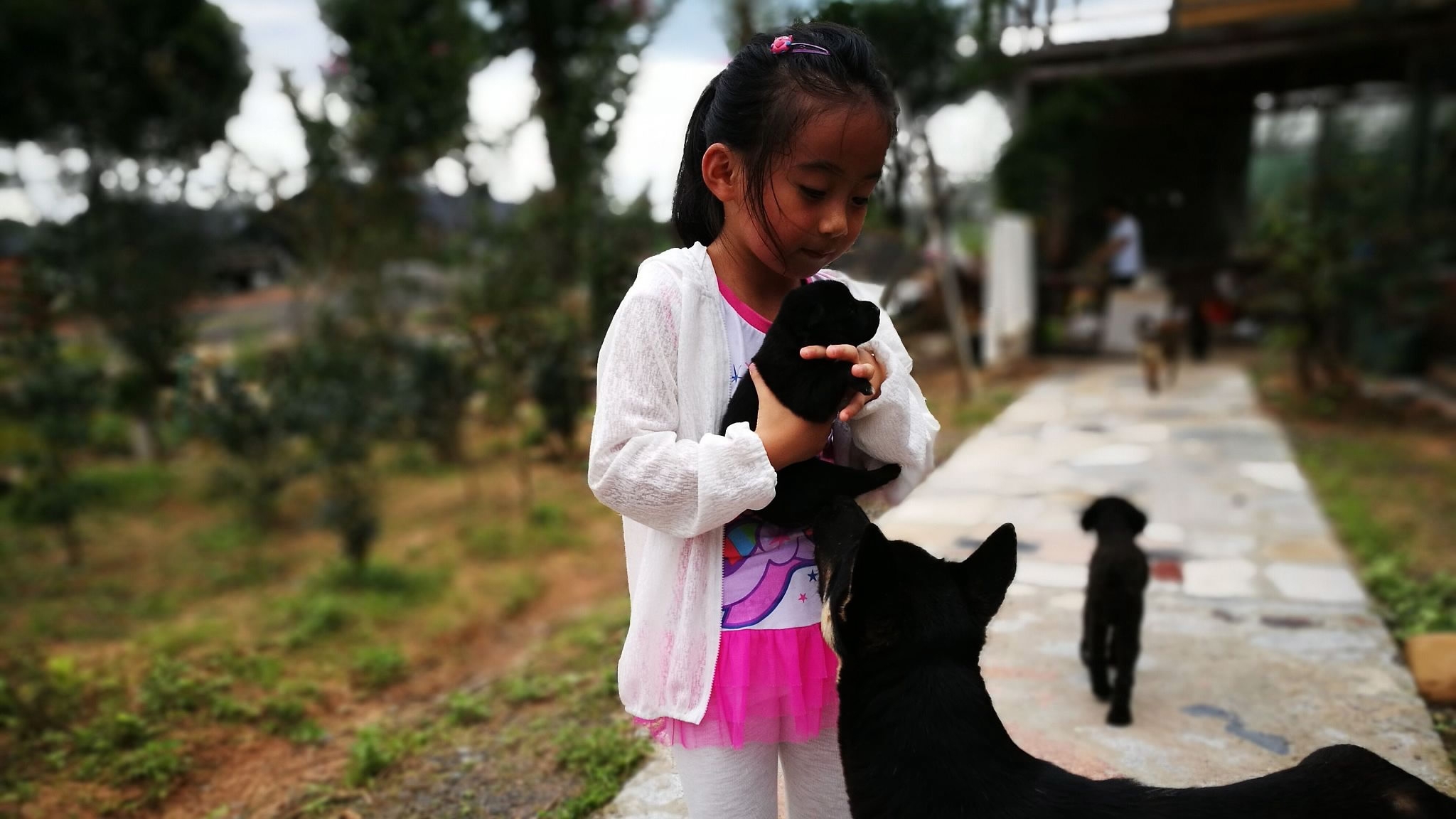
China
15:29, 10-Feb-2018
What do dog-related phrases say about Chinese culture?
CGTN

With the Year of the Dog just around the corner, Chinese may find it hard to stick to the routine of sending zodiac sign themed blessings, since dog-related words in Chinese generally have negative connotations. However, things have been changing in the past few recent years.
#Self-mockery
Words and phrases containing dogs (Gou in Chinese) are commonly used by young people when cracking jokes about themselves.
For example, in Mandarin, you can say "Valentine's Day has nothing to do with me since I am a single dog."
"Overtime dog" is another title frequently referred to those who work long hours.
It is believed that words and phrases like these containing humor and self-deprecation ease the stigma attached to dog-related words.

A giant dog balloon with a banner saying “save single dogs” on its neck was seen in southwest China’s Chongqing Municipality in last November. /Chinanews Photo
A giant dog balloon with a banner saying “save single dogs” on its neck was seen in southwest China’s Chongqing Municipality in last November. /Chinanews Photo
#Representation of close relationship
Adding "dog" to a friend's name can also be considered as a proof of a close relationship.
One of the most prominent examples in China is that of the actor Lin Gengxin, who is called Lin Gou - Chinese for Lin Dog - by his celebrity friends and beloved fans.
Along with the word dog as a sort of surname, you can also put it after given names and it is occasionally used by young couples.

After calling himself as “Lin Gou”, Lin Gengxin asked netizens to share their own nicknames on his Weibo account. /Weibo Photo
After calling himself as “Lin Gou”, Lin Gengxin asked netizens to share their own nicknames on his Weibo account. /Weibo Photo
#Easy to raise
Children with amiable names are easy to bring up, according to an ancient Chinese proverb.
Parents in rural areas prefer to give nicknames including Gou Sheng and Gou Dan to their children in the hope that they are as easy to be fostered as dogs.
The Goubuli steamed bun, a famous Tianjin snack, has a nickname "Gou Zi". It is anecdotally said that the brand was named after its founder’s Gao Guiyou's nickname.

A girl played with her dogs at a village in eastern China’s Zhejiang Province in last July. /VCG Photo
A girl played with her dogs at a village in eastern China’s Zhejiang Province in last July. /VCG Photo
#Metaphor
Since dogs are considered to be loyal and diligent, the word is included in more than 10 Chinese metaphors.
For instance, "serve like a dog or a horse," is used to describe someone who is ready to render his humble services to the authorities.
"Dogs don't bark to their owners" is an idiom usually adopted to represent the loyalty of ministers to their monarchs.
A love of dogs is not particular to Chinese. In English, people use the phrase "tired like a dog" to say they are exhausted and say "love me, love my dog" when they hope their partner loves the way they are.
Coincidentally, there are phrases expressing these meanings in Chinese, proving again that we are not that different.

SITEMAP
Copyright © 2018 CGTN. Beijing ICP prepared NO.16065310-3
Copyright © 2018 CGTN. Beijing ICP prepared NO.16065310-3